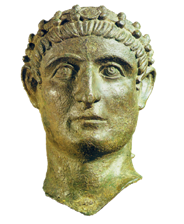

|
Abstract: Zoran Ognjanović |
|
PROBABILITY LOGICS
The problem of reasoning with uncertain knowledge is an ancient problem dating, at least, from Leibnitz and Boole. However, in the last decades there is a growing interest in the field connected with applications to computer science and artificial intelligence. Researchers from those areas have studied uncertain reasoning using different tools. Some of the proposed formalisms for representing, and reasoning with, uncertain knowledge are based on probabilistic logics. That approach extends the classical (propositional or first order) calculus with expressions that speak about probability, while formulas remain true or false. Thus, one is able to make statements of the form "the probability of A is at least s". The probability operators behave like modal operators and the corresponding semantics consists in special types of Kripke models (possible worlds) with addition of probability measures defined over the worlds. One of the main proof-theoretical problems with that approach is providing an axiom system which would be strongly complete ("every consistent set of formulas has a model", in contrast to the weak completeness "very consistent formula has a model"). This results from the inherent non-compactness of such systems. Namely, in such languages it is possible to define an inconsistent infinite set of formulas, every finite subset of which is consistent. There is an unpleasant consequence of finitary axiomatization in that case: there exist unsatisfiable sets of formulas that are consistent with respect to the assumed finite axiomatic system (since all finite subsets are consistent and deductions are finite sequences). Another important theoretical problem is related to the decidability issue. The paper summarizes the results of the authors in formalization of uncertain reasoning. A number of probability logics is considered. Their axiomatizations, completeness, compactness and decidability are addressed. Some possible applications of probability logics are analyzed.
Joint work with: M. Rašković and Z. Marković |

